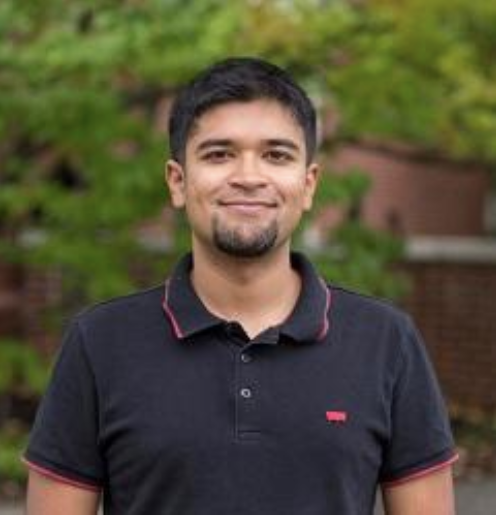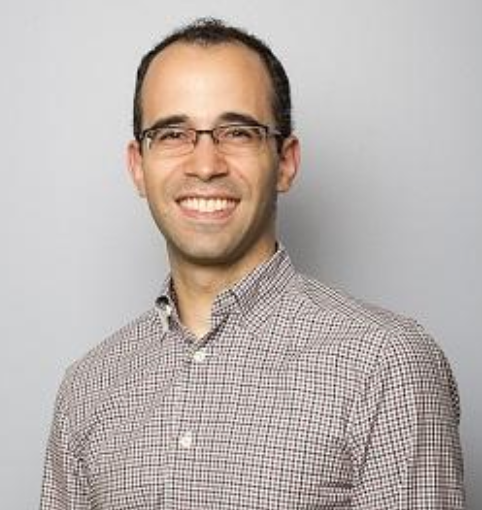2017 Cohort of HGHI Burke Global Health Fellows

Jose F. Figueroa
MD, MPH
Biography:
Jose Figueroa is an Instructor of Medicine at Harvard Medical School and an Associate Physician at Brigham & Women’s Hospital. He graduated from Harvard Medical School and the Harvard School of Public Health in 2011 and he completed his residency in Internal Medicine at the Brigham & Women’s Hospital, where he now serves as Faculty Director of the BWH Residency Management & Leadership Track. Jose previously worked at GAVI, the Vaccine Alliance. His main research interests include 1) identifying needs and successful models of care for high-need, high-cost populations, 2) improving health equity, and 3) evaluating the impact of pay-for-performance efforts globally on health care quality and costs. Most recently, Jose has been developing and evaluating the quality framework for a large-scale pay-for-performance intervention in rural China directed at county hospitals responsible for the care of over 63 million people.
Project Title: Impact of Financial Incentives to Promote Hospital Quality in Rural China
Burke Fellowship Research Abstract:
Recently, China completed the largest insurance enrollment in human history, with approximately 1.2 billion citizens enrolled. A major focus of this reform now is to ensure China achieves better health outcomes at an affordable price. As a result, China is currently investing on large-scale experiments with different payment models to promote quality. One promising model is a multi-year pay-for-performance project aimed at Chinese rural hospitals called project APPROACH, the Analysis of Provider Payment Reforms on Advancing China’s Health. This project utilizes a mixed payment model, combining a capitated global budget and pay-for-performance incentives, directed at Chinese rural county hospitals. As part of this project, Jose will be leading the effort to identify and validate the quality framework for this large-scale program targeting hospitals that care for a population of over 63 million people. In addition, he will evaluate the impact of this incentive program on the quality of care delivered by Chinese rural hospitals. Insights gained from this project will be valuable for other countries similarly interested in moving towards value-based health systems.

Lindsay Jaacks
PhD
Biography:
Lindsay Jaacks is an Assistant Professor in the Department of Global Health and Population at the Harvard T.H. Chan School of Public Health and a Visiting Professor at the Public Health Foundation of India in Delhi. Prior to her appointment at Harvard Chan, she completed a Postdoctoral Fellowship at the Emory Global Diabetes Research Center in Atlanta. Lindsay has served as a consultant to the U.K. Department for International Development on addressing overweight/obesity in low-income countries, and is currently serving as a consultant to RTI International on estimating the impact of food and nutrition policies on diabetes.
The overarching vision of Lindsay’s research program is to advance our knowledge of the intersection between the food system and health system with respect to cardio-metabolic health, and to apply that knowledge to develop interventions to halt the increase in obesity and diabetes, particularly in low- and middle-income countries. Her current projects can be characterized by two broad categories: 1) those addressing primary prevention (exposures in the food system) of obesity and diabetes, and 2) those addressing secondary prevention (health system performance) of cardio-metabolic diseases. Projects include both observational and intervention studies using quantitative and qualitative approaches, and, importantly, span the biochemical-population spectrum.
Project Title: Association of Pesticide Exposures with Infant and Child Growth in Rural Bangladesh
Burke Fellowship Research Abstract:
Children around the world are not reaching their full potential. In South Asia, over a third of children under 5 are stunted. Innovative interventions and programs targeting in utero exposures are needed to address this significant global disease burden. Endocrine disrupting chemicals, including some pesticides, have been linked to impaired child development including intrauterine growth restriction and low birth weight. Few studies have explored these associations in South Asia, where more women are directly engaged in agriculture and therefore in utero exposures are likely higher. Lindsay’s project will leverage stored samples from a prospective birth cohort study in rural Bangladesh, which enrolled 1613 women between 2008 and 2011. Between 2010 and 2013, children born to mothers in the original study were invited to participate in follow-up studies. Stunting outcomes were available for 618 children. Stored baseline (≤16 weeks gestation) maternal urine samples (n=300) will be analyzed for the following contemporary-use pesticides or their metabolites: 2,4- 2,4-D and 2,4,5-T (herbicides); a metabolite of Diazinon, a metabolite of Chlorpyrifos, a metabolite of Malathion; four Pyrethroid metabolites; and a metabolite of Parathion. Multivariable regression models will be used to assess associations between early pregnancy levels of pesticides and birth weight, low birth weight, preterm birth, height-for-age, stunting, and head circumference. From her initial research, no study has explored the association of exposure to these pesticides in utero and infant and child growth outcomes in Bangladesh. Thus, results of this innovative project will provide new insights into the effects of these modifiable exposures, and potential targets for future interventions.

Gautam Rao
PhD, MS
Biography:
Gautam Rao is an Assistant Professor at the Department of Economics at Harvard University, a Faculty Research Fellow at the National Bureau of Economic Research (NBER), and a faculty affiliate at the Jameel Poverty Action Lab (JPAL). His research seeks to bring insights from psychology to bear on topics in development economics. Recent and ongoing projects include studying how to increase the take-up and success of commitment contracts for preventive health in rural India; the effect of depression on economic preferences and behaviors; the economic and health consequences of sleep deprivation among the urban poor in India; and how mixing rich and poor students in schools in India affects social preferences and behaviors.
Project Title: The Economic and Health Consequences of Improving Sleep among the Urban Poor
Burke Fellowship Research Abstract:
A large body of medical research has shown that sleep deprivation adversely affects outcomes ranging from pain sensitivity to cognitive and cardiovascular function. Much of this evidence comes from sleep labs in the developed world, where sleep can be carefully manipulated, and short-run physiological and cognitive outcomes precisely measured. In contrast, little is known about the prevalence and consequences of sleep deprivation among individuals in the developing world, especially those in urban settings who may be exposed to conditions such as heat, noise, over-crowding and uncomfortable living conditions. Gautam plans to provide the first objective measures of sleep in a developing country and implement an RCT to improve sleep among 500 low-income adults in Chennai, India. This RCT evaluates scalable interventions to improve sleep – the provision of sleep-aid devices for use at home and a 30-minute afternoon nap at the participants’ work site – and studies the impact of improved sleep on a variety of health and economic outcomes over a period of one month in a “real-world” environment. Promisingly, based on numerous small-scale pilot studies, Gautam expects the two interventions to increase daily sleep by over an hour.

Gustavo E. Velásquez
MD, MPH
Biography:
Gustavo E. Velásquez is an Associate Physician in the Division of Infectious Diseases at Brigham and Women’s Hospital. He is an Instructor in Medicine and a Research Associate in Global Health and Social Medicine at Harvard Medical School. Gustavo received his MD from the Northwestern University Feinberg School of Medicine and his MPH from the Harvard T.H. Chan School of Public Health in 2009. He completed the Doris and Howard Hiatt Residency in Global Health Equity and Internal Medicine at Brigham and Women’s Hospital in 2013 and fellowship in Infectious Diseases at Massachusetts General Hospital and Brigham and Women’s Hospital in 2015.
Gustavo’s research has examined the optimal construction of regimens to treat multidrug-resistant tuberculosis (MDR-TB) in Tomsk, Russian Federation, and evaluated the association between HIV coinfection and pyrazinamide resistance on TB outcomes in Lima, Peru. He is currently collaborating with Dr. Carole Mitnick and her team on: 1) the analysis of a Phase II clinical trial (HIRIF, NCT01408914) examining the potential of high-dose rifampin to shorten standard TB therapy in Peru, 2) the implementation of a Phase III clinical trial (endTB, NCT02754765) evaluating the efficacy and safety of new MDR-TB treatment regimens in Georgia, Kazakhstan, Kyrgyzstan, Lesotho, Peru, and South Africa, and 3) the implementation of a pharmacokinetic/pharmacodynamic (PK/PD) sub-study nested in the endTB trial.
Project Title: Novel and Repurposed Drugs for Multidrug-Resistant Tuberculosis: Targeting Toxicity to endTB
Burke Fellowship Research Abstract:
In 2015, less than a quarter of the 580,000 new patients requiring treatment for MDR-TB received appropriate treatment. Those who did, suffered from toxicities including nausea, vomiting, arthralgia, diarrhea, nephrotoxicity, and hepatotoxicity, during at least 18 months of daily treatment. Consequently, treatment is poorly tolerated and loss to follow-up occurs among nearly one quarter of patients, leading to further MDR-TB transmission and disease.
Two new drugs, bedaquiline and delamanid, and two repurposed drugs, clofazimine and linezolid, were recently recommended for MDR-TB treatment. All four drugs are represented in the experimental arms of the “Evaluating Newly Approved Drugs for Multidrug-Resistant TB” Phase III clinical trial (endTB, NCT02754765). The endTB trial, which evaluates the efficacy and safety of new MDR-TB regimens, and its PK/PD sub-study, provide a unique and timely opportunity for an interdisciplinary evaluation of new and repurposed drugs for MDR-TB. This project will be embedded in endTB and its PK/PD sub-study, and will 1) explore whether adverse events are less common with the new regimens, 2) compare the safety and tolerability of two linezolid dose-reduction strategies, and 3) investigate the association between plasma drug exposure and the safety and tolerability of combination regimens.


